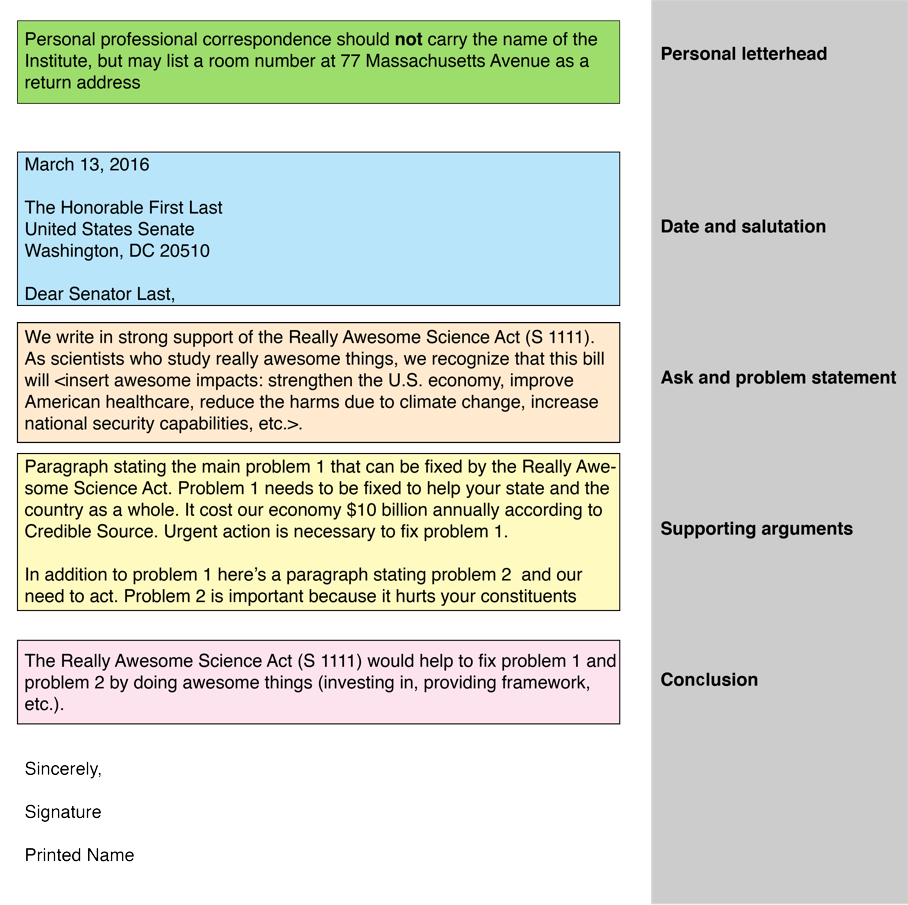Developed in collaboration with Dr. Dan Pomeroy, manager of MIT’s International Policy Lab.
Criteria for success
- Make a clear ask based on your position.
- Make letter readable by target audience (legislators, staffers, etc).
- Make a clear argument (economic, health, social, etc.) on your bill or issue of interest and support it with your research or expertise.
Structure diagram

Purpose
As an expert in your field, you can provide outside validation for or against a proposed policy. Use your research and expertise to provide weight to an argument. Your letter should use your technical knowledge to make a clear recommendation based on reasons that the member of Congress will care about.
Skills
Establish your credentials
- Give relevant title and background to establish your expertise.
Make a clear argument
- Make a case to that office: use arguments that will appeal to the policy maker and their constituents.
- Use anecdotes and analogies over facts and figures when possible.
- Limit use of jargon or technical details except when they’re critical to your argument.
Hammer home your ask
- In your first paragraph, make your ask in support or opposition to a specific action: “We urge your support for H.R. ##, which will help to…”, “We write in strong support of..”, “We oppose cuts to…”
- Be specific. If you are writing in reference to a specific bill, include the bill number.
- Repeat your ask. In your conclusion, summarize your argument and repeat your specific call for action.
Use proper style
- Avoid informal language.
- Keep it brief. Keep letters to one page and try to discuss only one bill or issue in a given letter. Make use of bullet points to outline several arguments.
Additional examples
(see also Annotated Example below)
- AAAS Letter on FY 2017 appropriations
- American Society for Microbiology (ASM) on FY 2018 for the National Science Foundation (NSF) appropriations
- American Society for Microbiology (ASM) on FY 2018 for the Food and Drug Administrations FY 2018 Appropriations
- Financial Scholars Oppose Eliminating “Orderly Liquidation Authority” As Crisis-Avoidance Restructuring Backstop
- Business School Professors in support of FAMILY Act
- Edison Electric Institute on Cyber Security Act
